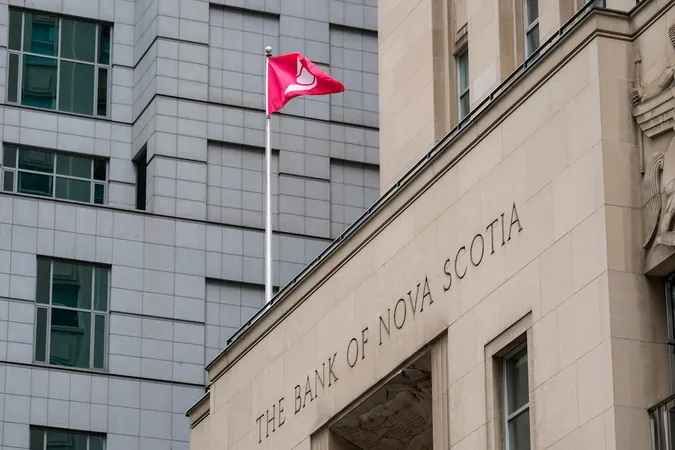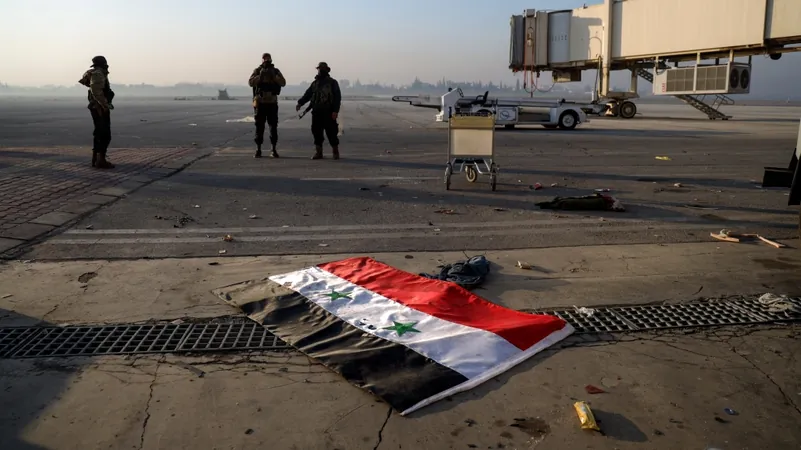
Russian Expat in Canada Takes on Scotiabank Over Frozen Funds Due to Sanctions: Is She the Tip of the Iceberg?
2024-12-12
Author: Liam
Overview of the Situation
In a shocking revelation, Daria Zubashchenko, a Russian woman who has been residing in British Columbia for eight years, claims that her funds are being unjustly withheld by Scotiabank due to sanctions relating to Russia's major banking institution. This legal battle is stirring questions about the broader implications of Canada's sanctions policy, initially enforced in reaction to Russia's invasion of Ukraine.
Zubashchenko's story is not just a tale of personal hardship. It highlights how individuals who are living and working lawfully in Canada may be inadvertently affected by sweeping financial regulations aimed primarily at oligarchs and other high-profile figures. Her lawyer noted that multiple clients have approached him with similar predicaments, although many decided against legal action over smaller sums.
Legal Action
Last month, Zubashchenko filed two petitions in Federal Court—one targeting the Bank of Nova Scotia and the other involving Global Affairs Canada and the attorney-general. As a legal resident with a valid work permit, Zubashchenko insists that she is an innocent party in this geopolitical crisis.
Background
After graduating from Simon Fraser University in 2021 with a degree in psychology, Zubashchenko and her mother sold two properties in Russia, resulting in her receiving close to $324,000. However, her attempts to transfer approximately $90,000 from her account at Sberbank—now sanctioned by Canada—resulted in a blocked wire transfer. Upon investigating, she discovered that her funds were caught in the regulatory net imposed by the Special Economic Measures (Russia) Regulations.
Scotiabank's Involvement
In June 2022, Scotiabank informed her that her money was “being held and disclosed to the Royal Canadian Mounted Police” as part of compliance with these regulations. They suggested applying for a permit through Global Affairs Canada to access her funds. However, despite attempts to explain that the sanctions did not apply directly to her case, Scotiabank allegedly maintained that they could not release the funds without the necessary permit.
Legal Representation and Escalation
Vancouver's Fraser Litigation Group, headed by Seva Batkin, represents Zubashchenko and alludes to her situation as indicative of a troubling trend where individuals—merely seeking to execute their financial affairs—are trapped due to convoluted sanctions that lack clarity and comprehensive support. Batkin mentioned that many of his clients face similar dilemmas but often opt not to pursue legal recourse due to the perceived minimality of their losses.
Scotiabank's Response
An appeal made to Scotiabank’s customer complaints office was also met with disappointment. Scotiabank reiterated their position, indicating that they are legally obliged to freeze transactions related to Sberbank. "We understand your client’s frustration, but as a financial institution, compliance with sanctions is mandatory," stated the bank in their correspondence.
Government Oversight
Even more disconcerting, Zubashchenko's petitions allege that Global Affairs Canada has not processed her applications for permits made in June 2022 and June 2024, despite recognizing their existence. This raised eyebrows about the agency's efficiency and the criteria guiding their permit evaluations, which are purportedly granted only in exceptional circumstances to mitigate unintended consequences of the sanctions.
Broader Implications
Scotiabank maintains that it fully complies with applicable sanctions in all jurisdictions, yet the chilling effect of such regulations on the general populace raises essential questions. As Zubashchenko's case continues to unfold in court, it serves as a reminder that the consequences of geopolitical actions do not exclusively affect the targeted elites but can severely impact ordinary citizens as well.
Conclusion
As Canada continues to navigate sensitive international relations and financial policies, the outcomes of legal challenges like Zubashchenko's may pave the way for a more nuanced approach to sanctions that takes into account the individual circumstances of those affected. Will her fight against Scotiabank lead to broader changes in how Canada administers its foreign policy sanctions? Stay tuned as this story develops!









 Brasil (PT)
Brasil (PT)
 Canada (EN)
Canada (EN)
 Chile (ES)
Chile (ES)
 España (ES)
España (ES)
 France (FR)
France (FR)
 Hong Kong (EN)
Hong Kong (EN)
 Italia (IT)
Italia (IT)
 日本 (JA)
日本 (JA)
 Magyarország (HU)
Magyarország (HU)
 Norge (NO)
Norge (NO)
 Polska (PL)
Polska (PL)
 Schweiz (DE)
Schweiz (DE)
 Singapore (EN)
Singapore (EN)
 Sverige (SV)
Sverige (SV)
 Suomi (FI)
Suomi (FI)
 Türkiye (TR)
Türkiye (TR)